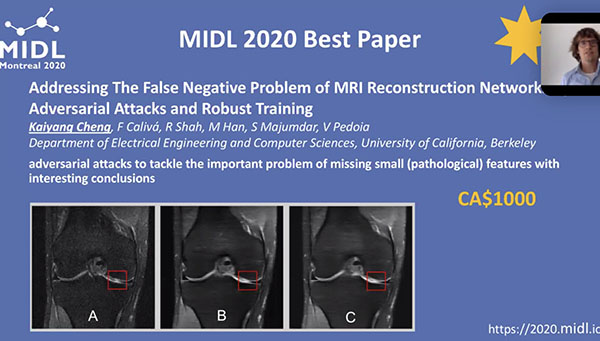
High data quality is a priority in medical image analysis. Magnetic resonance imaging (MRI) has the capability of satisfying such requirement when it comes to screening soft tissues. Nevertheless, MRI has a limitation of requiring long scanning time. Deep learning models have been shown to be successful in accelerating MRI reconstruction, over traditional methods. However, it has been observed that these methods tend to miss rare small features, such as meniscal tears, and subchondral osteophytes, in musculoskeletal applications. Such findings are concerning for radiologists, as these small and rare features are the particularly relevant in clinical diagnostic settings.
To address these concerns, a group of scientists from the UCSF Center for Intelligent Imaging (ci2) proposed a framework to find the worst-case false negatives by adversarially attacking the trained models…























